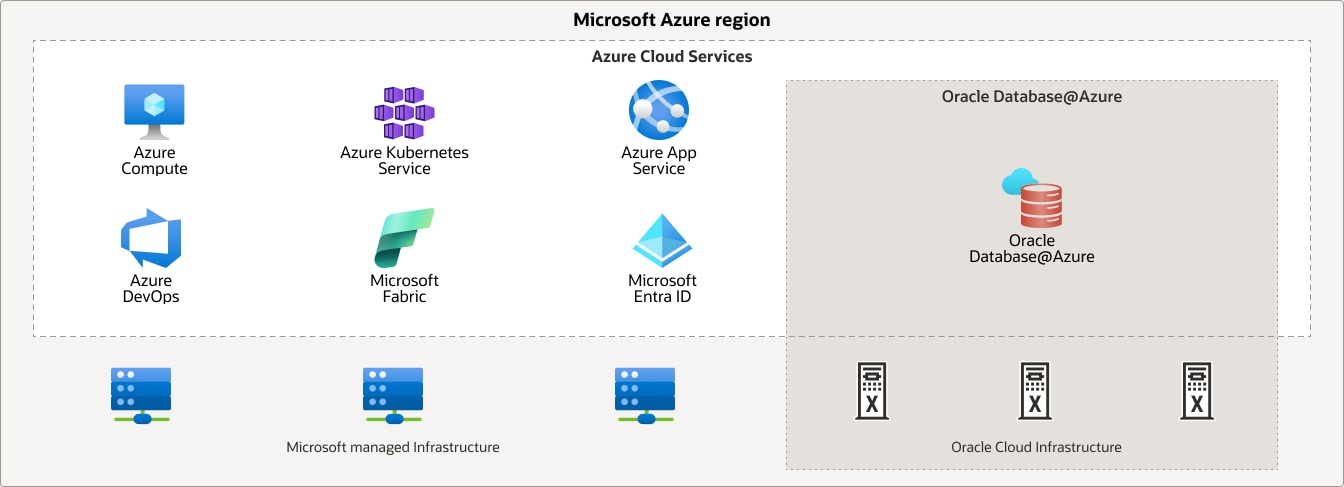Microsoft and Oracle recently announced the general availability of Oracle Database@Azure, allowing Azure customers to procure, deploy, and use Oracle Database@Azure with the Azure portal and APIs.
Earlier in September 2023, both companies, through their partnership, announced the Oracle Database@Azure offering, which puts Oracle Cloud Infrastructure (OCI) inside Microsoft Azure data centers, starting with Oracle’s leading database. It is now generally available in the Azure East United States region, with more regions coming in 2024, like Germany West Central, Australia East, France Central, Canada Central, Brazil South, and Japan East. The Exadata Database Service is the first service to be available, along with support for Oracle Real Application Clusters (RAC), Oracle GoldenGate, and Oracle Data Guard technologies.
Azure customers can purchase Oracle Database@Azure from the Azure Marketplace with the same features and pricing as Oracle Exadata cloud service on OCI. In addition, they can benefit from existing Azure and Oracle commitments, program benefits, and licenses.
Brett Tanzer, a vice president of product management at Microsoft, wrote in a blog post:
You can now use Oracle database services running on OCI hardware deployed in Azure data centers. This streamlines the migration of Oracle database workloads to Azure, where you can integrate and innovate with the breadth of Microsoft Cloud services like Azure AI and our application platform and developer services.

Overview of Azure Service with Oracle database services running on Oracle Cloud Infrastructure, collocated in Microsoft Azure data centers (Source: Oracle website)
Holger Mueller, principal analyst and vice president at Constellation Research Inc., told InfoQ:
As traditional competitors Microsoft and Oracle, they still must partner for the benefit of their joint customers. In this case, Azure customers have data in an Oracle database. Previously, the Interconnect partnership was going to address this, but it lacked performance from a pure network speed and administrative efficiency. Now Azure customers can access their Oracle data with the same setup and operational ease of use - as if the Oracle Database was a Microsoft offering... a true win for enterprises and a new level of partnership between competitors (competitors & cooperators).
Lastly, when transitioning to Oracle Database@Azure, migrating and deploying production-grade environments for customers is straightforward, as Oracle offers established database migration strategies, such as utilizing automated solutions like Zero-Downtime Migration (ZDM). Additionally, Oracle Database@Azure is equipped with support for the Oracle Maximum Availability Architecture (MAA), offering reliable, high-availability architectures and configurations to fulfill various resiliency needs.